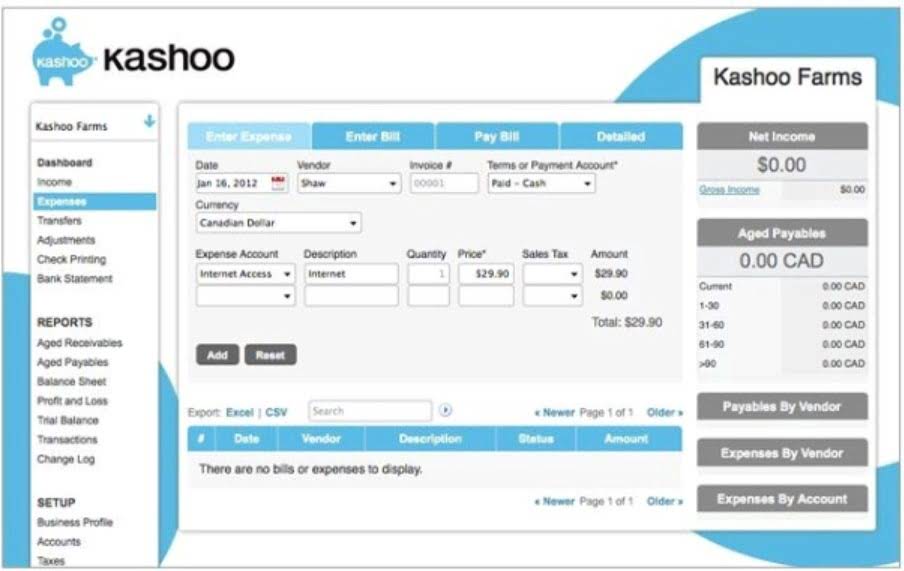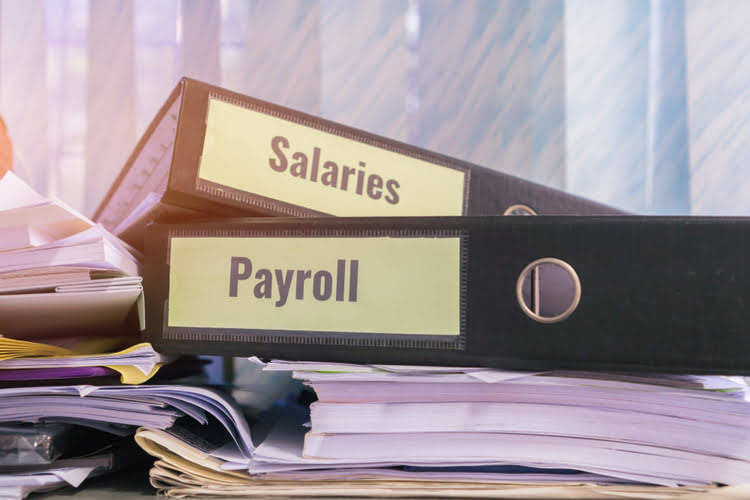Content

Employers also prefer to hire bookkeepers who have taken some postsecondary courses. So, some professionals may pursue certificate programs in bookkeeping as a degree alternative. Other bookkeepers finish their high school diplomas and then seek on-the-job training. To prove they possess certain skills, they may also complete one or both professional bookkeeping certificates available. Most bookkeepers hold high school diplomas and have completed postsecondary courses in relevant subjects, like accounting. Companies also have to set up their computerized accounting systems when they set up bookkeeping for their businesses.
Read more below to learn about bookkeeping, typical responsibilities, how to become a bookkeeper, and remote bookkeeping opportunities with Intuit working onQuickBooks Live in the U.S. 50 states. Then, kickstart your bookkeeping career by signing up for an Intuit Bookkeeping Certification. At the same time, the number of predicted bookkeeping job openings per year over that period is 197,600.
Various Bachelor’s in Accounting Degrees
Their accounting courses range from 2-20 hours and are grouped into level 1, level 2, and level 3 for your convenience. Offered by the University of Virginia’s Darden School of Business, this Coursera class is taught by top-ranked faculty and is specifically tailored to help small business owners understand their finances. The QuickBooks comprehensive training program gets users comfortable with using QuickBooks software in just two days.

They provide courses in different categories like business analysis, project management, business accounting, and bookkeeping. In order to obtain the bookkeeper certification accredited by the NBA, you need to complete the accounting fundamentals course and pass the uniform bookkeeper certification exam. A Bachelor’s Degree in Accounting can provide you with the fundamental knowledge necessary to start advising businesses, individuals, and organisations in financial and accounting matters. Some employers may require you to have only a high school diploma for an entry-level bookkeeping position. However, most employers expect you to have additional education and some type of work experience.
What Does a Bookkeeper Do?
Previous work experience makes finding clients as a bookkeeping business owner much easier. You’ll be dealing with a lot of financial data and numbers in this career path. If you’re not a numbers person, it may be worth practicing some basic accounting and math skills to prepare for this https://www.bookstime.com/articles/capitalization-rate type of career. It’s completely possible to become a skilled and successful freelance bookkeeper without the need for a specialized degree or lengthy certification. While more education is always a bonus, many successful freelance bookkeepers start right out of secondary school.
- In practice, they’re quite easy to understand once the terms are broken down into much simpler definitions.
- However, to become certified by the National Association of Certified Public Bookkeepers, you need at least two years of experience.
- Once you attend a QuickBooks training class, you will receive a QuickBooks certification study guide.
- The CB designation for bookkeeping is the same as what a CPA is for accounting.
- This guide is designed to simplify the bookkeeping process for you, providing you with the basics from proper setup of all of your accounts to why it’s important to record transactions promptly.
- The chart of accounts may change over time as the business grows and changes.
Getting additional bookkeeping certificates can also help those who already have bookkeeping experience because it can serve as proof that you’re keeping up with best practices and the newest technology. Generally, employers are looking for someone with strong data entry skills who can keep their financial records in order, document all of their key transactions, and manage invoices. The program covers topics such as payroll, wholesale accounting, revenue, expenses, assets, liabilities, financial reports, tools used in the industry, and more. With this program, you’ll get eight courses which feature 14 exams and three submitted projects. The program also offers experience working with popular software tools such as Excel and Quickbooks. Whether you’re a freelancer or small business owner, this simple course provides a great introduction to keeping track of basic expenses and revenue.
Bookkeeping Best Practices
If you’re a bookkeeper or accountant new to FreshBooks, joining the free Partner Program is the fastest way to learn the software and get access to the FreshBooks Accounting Certification. Learning to use FreshBooks enables you to reach more prospective clients and grow your firm. Every business can benefit from having a bookkeeping professional or someone who understands bookkeeping fundamentals. Learning bookkeeping is a good idea for anyone with a business, even if your primary goal is not becoming a professional bookkeeper. Once you’re done with the introductory level course, you can move on to the free intermediate bookkeeping course covering topics such as reconciling control accounts and the cashbook. OpenLearn University offers interactives, videos, and text for all types of learners.
But if you’re serious about developing the skills needed to work with finance and want to leave no stone unturned, it could be worth the investment. The class continues with more advanced topics, like how to analyze the capital structure of a company and determine various accounting ratios (leverage ratios, profitability ratios, asset ratios, etc.). When you’re finished you should have a solid foundation in bookkeeping for small businesses, and you’ll have a completion certificate to show for it. Free and low-cost online bookkeeping courses are an excellent way to learn bookkeeping. These courses focus on bookkeeping fundamentals to enhance knowledge and bookkeeping skills.
There are many opportunities to work in a salaried position from home to gain on-the-job training. The Intuit Tax and Bookkeeping Talent Community is a great place to find remote bookkeeping jobs and access training material. Many programs will provide certificates to show you completed the course. Some provide free and low-cost resources, while others may be more expensive but provide more knowledge. In this final module for Course 1, you will gain an understanding of key accounting assumptions and principles and learn about the different types of accounting methods bookkeepers use.
Gain the professional skills you need to succeed in the bookkeeping field. The role can function as a part-time job to supplement other income, or you can be a full-time bookkeeper. If you become a QuickBooks Live bookkeeper, you can work from home based upon an agreed schedule at a set hourly rate based on your location, interview, and experience level.
Coordinate with a tax specialist
Traditionally, you would need to wait to receive your monthly bank statement and reconcile the transactions on the statement with those posted in your ledger or accounting software. The purpose behind completing a monthly reconciliation is to see what checks are still outstanding, post any bank transactions, and add additional charges such as account fees. Because of these factors, advancing your bookkeeping how to learn bookkeeping career to a role in accounting can be advantageous. For instance, the job outlook for accountants and auditors has a 6 percent growth rate from 2021 to 2031. The median salary for these roles is also higher than for bookkeepers at $77,250 per year [4]. According to 81 percent of CBs who interviewed for a new job after becoming certified, having a certification contributed to getting the interview [4].
- Freelance jobs can range from quick temporary projects to long-term employment.
- Previous work experience makes finding clients as a bookkeeping business owner much easier.
- To prove they possess certain skills, they may also complete one or both professional bookkeeping certificates available.
- Your electronic Certificate will be added to your Accomplishments page – from there, you can print your Certificate or add it to your LinkedIn profile.
- Depending on the organization’s size, keeping track of business expenses and reconciling business statements may be your responsibility.
In addition, consider the tax implications and other business-related expenses to be deducted from earnings. Once you’ve completed your analysis, it is a good practice to pay all of your expenses first (by check or card, not cash) before determining profit. On average, it takes about four months to complete the professional certificate on a part-time basis of less than four hours of study per week. However, if you have time to devote more time each week to online learning, you can complete Intuit’s bookkeeping certificate in less time.
This class is taught by Earl Stice and Jim Stice, both accounting professors at Brigham Young University (BYU). It’s the first in a six-course path called “Getting Started in Finance & Bookkeeping.” This includes creating invoices, categorising expenses, setting up charts of accounts, and much more. QuickBooks also provides a webinar held by expert QBO accountant Hector Garcia. In this webinar, the QBO accountant covers how to set up QuickBooks Online and provides guidelines on some of the useful features of the product. Once you attend a QuickBooks training class, you will receive a QuickBooks certification study guide.



Connect with us